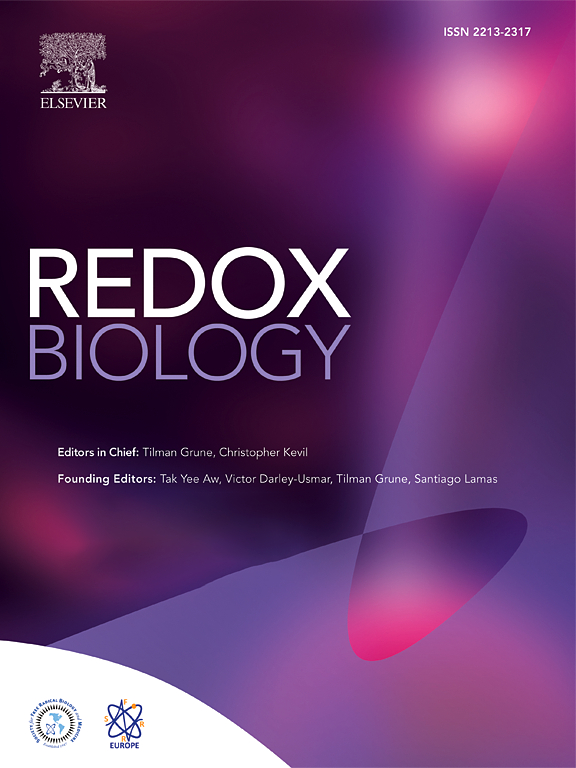Gp93 safeguards tissue homeostasis by preventing ROS-JNK-mediated apoptosis
IF 10.7
1区 生物学
Q1 BIOCHEMISTRY & MOLECULAR BIOLOGY
引用次数: 0
Abstract
Reactive oxygen species (ROS) play a pivotal role in maintaining tissue homeostasis, yet their overabundance can impair normal cellular functions, induce cell death, and potentially lead to neurodegenerative disorders. This study identifies Drosophila Glycoprotein 93 (Gp93) as a crucial factor that safeguards tissue homeostasis and preserves normal neuronal functions by preventing ROS-induced, JNK-dependent apoptotic cell death. Firstly, loss of Gp93 induces JNK-dependent apoptosis primarily through the induction of ROS. Secondary, neuro-specific depletion of Gp93 results in ROS-JNK-mediated neurodegeneration. Thirdly, overexpression of Gp93 effectively curtails oxidative stress and neurodegeneration caused by paraquat exposure or the aging process. Furthermore, these functions of Gp93 can be substituted by its human ortholog, HSP90B1. Lastly, depletion of HSP90B1 in cultured human cells triggers ROS production, JNK activation, and apoptosis. Thus, this study not only unveils a novel physiological function of Gp93, but also provides valuable insights for understanding the physiological and pathological functions of human HSP90B1.

求助全文
约1分钟内获得全文
求助全文
来源期刊

Redox Biology
BIOCHEMISTRY & MOLECULAR BIOLOGY-
CiteScore
19.90
自引率
3.50%
发文量
318
审稿时长
25 days
期刊介绍:
Redox Biology is the official journal of the Society for Redox Biology and Medicine and the Society for Free Radical Research-Europe. It is also affiliated with the International Society for Free Radical Research (SFRRI). This journal serves as a platform for publishing pioneering research, innovative methods, and comprehensive review articles in the field of redox biology, encompassing both health and disease.
Redox Biology welcomes various forms of contributions, including research articles (short or full communications), methods, mini-reviews, and commentaries. Through its diverse range of published content, Redox Biology aims to foster advancements and insights in the understanding of redox biology and its implications.
 求助内容:
求助内容: 应助结果提醒方式:
应助结果提醒方式:


